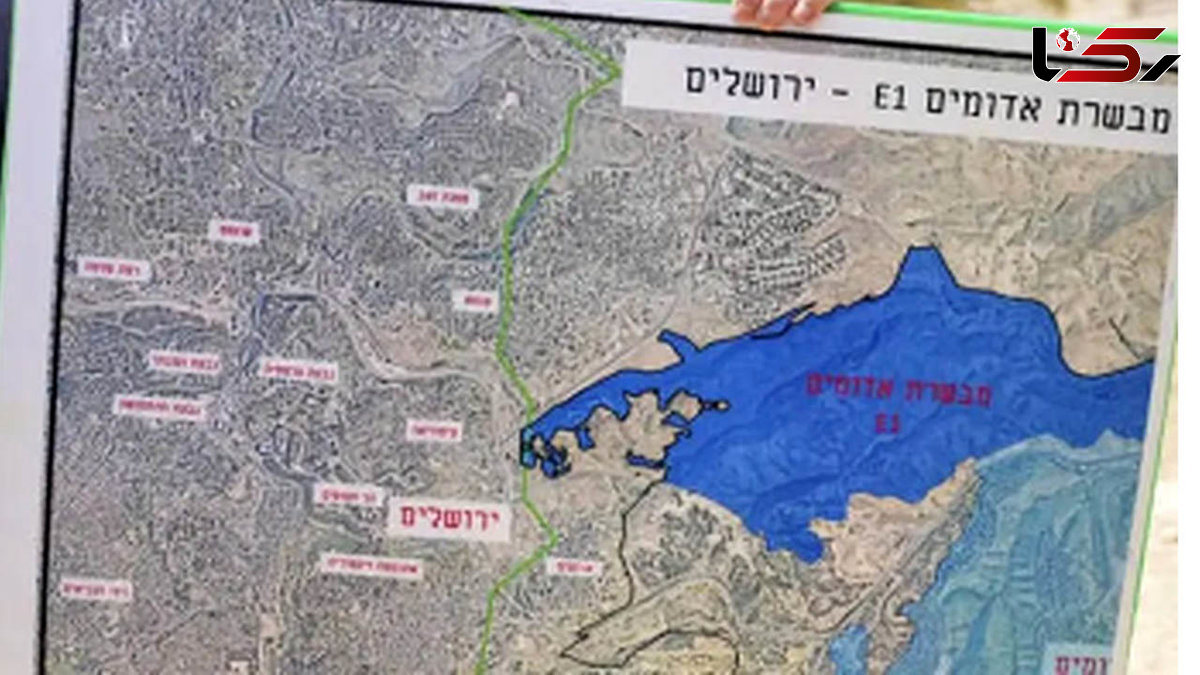Israel Approves Controversial “E1” Plan
Rokna Political Desk: The Israeli cabinet has approved the controversial construction plan in the “E1” area, a move that will encircle Jerusalem, divide the West Bank, and drastically reduce the likelihood of establishing an independent Palestinian state.

Tel Aviv has ratified the contentious settlement project in the E1 zone; a measure that will surround Jerusalem from four directions and divide the West Bank into separate sections.
According to Rokna, the Israeli cabinet on Wednesday officially approved the construction plan in the E1 area. The implementation of this plan will separate the northern West Bank from the southern part, effectively eliminating any possibility of establishing a Palestinian state in the future. The daily Haaretz described the plan as “controversial,” stressing that it had been postponed for years due to international pressure and is expected to provoke strong global reactions, significantly undermining the prospects of a two-state solution.
Israeli Finance Minister Bezalel Smotrich, following the plan’s approval, stated: “The Palestinian state disappears through action, not through slogans.” He called on the prime minister of the regime to “take the next step and impose full Israeli sovereignty over the West Bank.”
With the approval of this plan, which includes the construction of 3,412 housing units in the E1 area, the government can now officially issue tenders and building permits, paving the way for the commencement of construction. These projects had been delayed for years due to international pressure, given concerns that their implementation would jeopardize the possibility of establishing a Palestinian state in the future.
The E1 area spans approximately 12 square kilometers and lies to the north and west of the settlement of Ma’ale Adumim, itself situated east of occupied Jerusalem. These projects were first approved during the cabinet of Yitzhak Rabin but were halted in 2005 for political reasons. The current Israeli cabinet, however, appears to be moving forward without obstacles, enjoying full U.S. support, even regarding settlement expansion in the West Bank.
Several organizations have warned that E1 is the only remaining land reserve in the heart of three major West Bank cities—Ramallah, East Jerusalem, and Bethlehem—where about one million Palestinians reside. They have emphasized that implementing this plan would create a continuous corridor from the center of the West Bank to occupied Jerusalem, effectively eliminating any possibility of an agreement leading to the establishment of a Palestinian state.

Send Comments